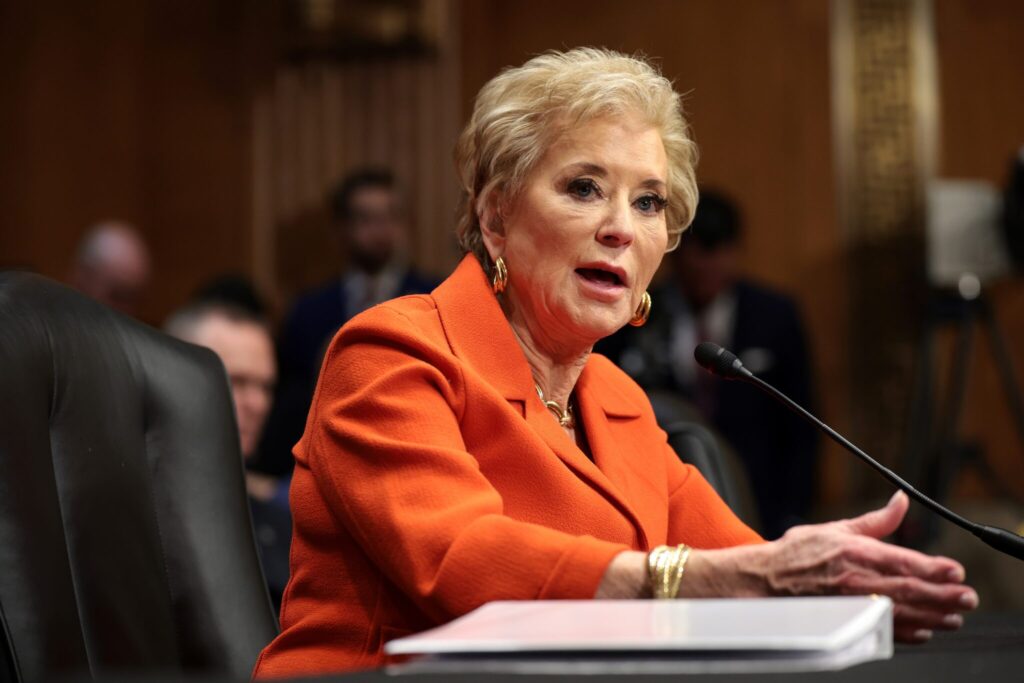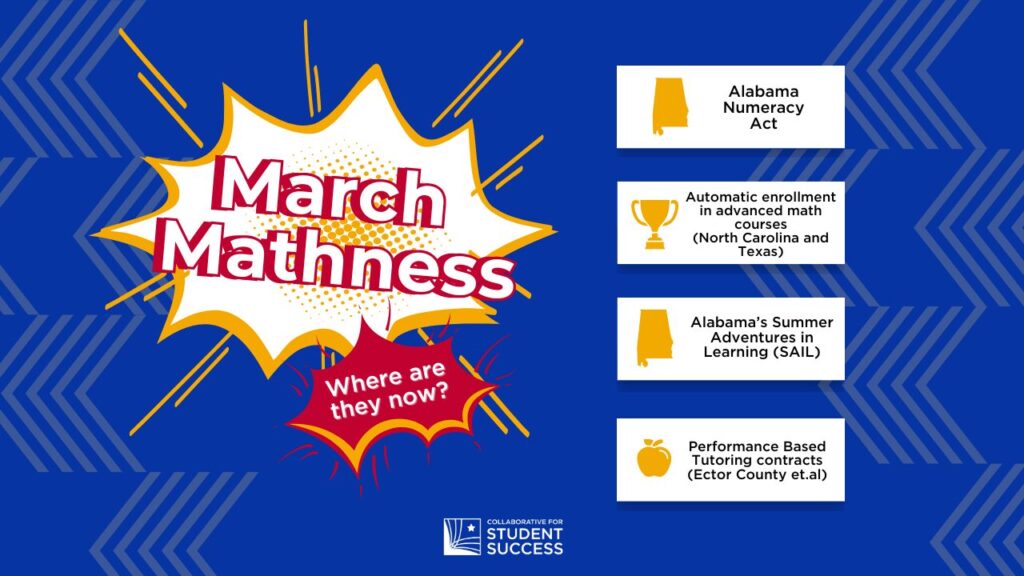A Low-Cost, Highly Effective Math Program
There’s no large, new financial investment coming over the horizon for America’s public schools. And yet, students still have a lot of unmet need.
Explore commentary and stories from Chad Aldeman, K-12 policy and school finance expert, on the evolving landscape of educational recovery and progress.

There’s no large, new financial investment coming over the horizon for America’s public schools. And yet, students still have a lot of unmet need.

For the last couple years we’ve been banging the drum on the need for states to process their test results much faster in order to provide timely information to parents and educators. Did you know states have actually gotten worse over time? The chart below compares the timing of when states released their school-level results […]

At 5:03pm Friday evening, Secretary of Education Linda McMahon officially called “time” on the COVID recovery effort. Whatever federal funds that hadn’t been spent yet would now go back to the Treasury. If your school district still had outstanding contracts or receipts, well, too bad!

Last month I wrote about how American public education is entering a new era, and that demands needs a new playbook. For the next few years, policymakers should look for no- or low-cost reforms, that have a strong evidence base, and which are relatively simple to implement.

Last month I wrote about how American public education is entering a new era, and that demands needs a new playbook. For the next few years, policymakers should look for no- or low-cost reforms, that have a strong evidence base, and which are relatively simple to implement.

No one is perfectly satisfied with the current suite of state assessments.

The education sector is entering a new era, and the playbook has to be different than it has been for the last few years.

Schools buy a lot of stuff. And many of those things are made internationally. So, as President Trump imposes tariffs on foreign-made goods, that will raise prices on schools and mean they either need to buy fewer things or find savings elsewhere, such as by reducing their expenditures on staff.

The Washington Post ran an article recently that was ostensibly about the U.S. women’s national soccer team. It focused on their coach’s embrace of a concept she calls “positive discomfort,” the idea that someone can’t reach their full potential without pushing themselves beyond their normal comfort zone.

When I first heard about Louisiana’s effort to streamline state and federal funding programs, it immediately made sense to me. Why have districts submit separate budgets and plans for multiple different programs, each with their own priorities, timelines, and reporting requirements?

Welcome to Fall, the season of football, pumpkin spice lattes, and finally seeing your child’s results from state tests they took last Spring.

As part of its redesigned school performance and support framework, last month Virginia adopted a new math acceleration indicator which will nudge schools to enroll more middle school student in advanced math courses.
Chad Aldeman is a nationally recognized expert on education policy, including school finance; teacher preparation, evaluation, and compensation; and state standards, assessment, and accountability. Chad has worked at the Edunomics Lab at Georgetown University, Bellwether Education, and the U.S. Department of Education during the Obama Administration.
He has published reports on K-12 and higher education accountability systems; school choice; student enrollment; and teacher preparation, evaluations, and compensation. His work has been featured on CNN and NPR and published in the Washington Post, New York Times, and Wall Street Journal. Chad holds a bachelor’s degree from the University of Iowa and a master’s of public policy from the College of William and Mary. Chad is also the founder of ReadNotGuess.com, a program to help parents support their child’s early reading skills.
Connect With Chad